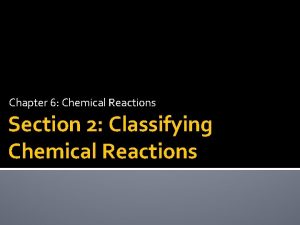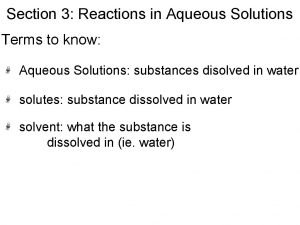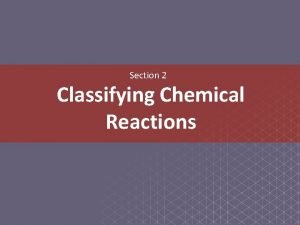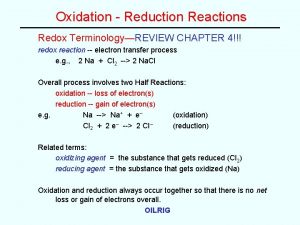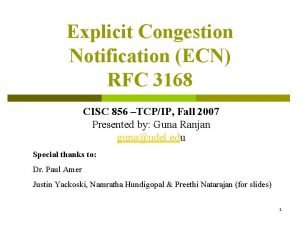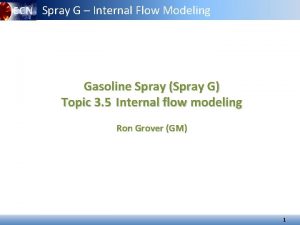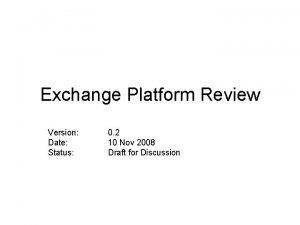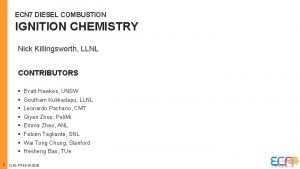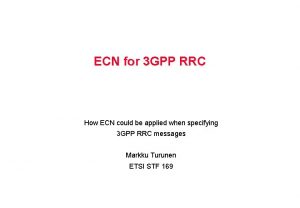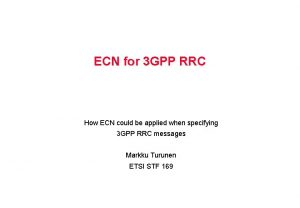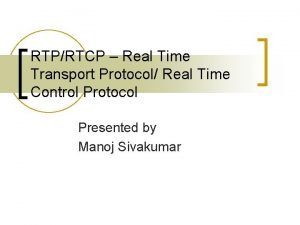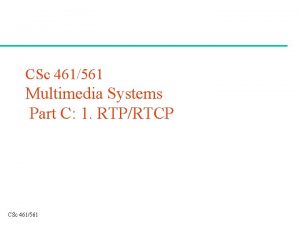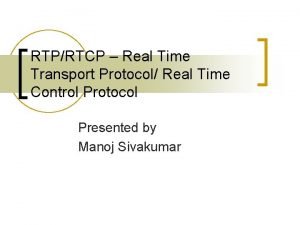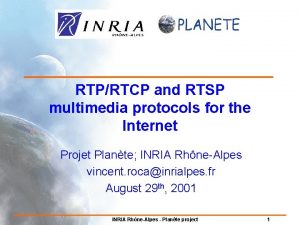Reactions to Signaling from ECN Support for RTPRTCP









- Slides: 9

Reactions to Signaling from ECN Support for RTP/RTCP draft-carlberg-tsvwg-ecn-reactions-00. txt 14 November 2011 Piers O’Hanlon Ken Carlberg

Background • RFC 3168: Addition of ECN to IP – Two layer design: IP ECN field, Transport negotiation & feedback – Specifies support for TCP – Obsoletes rfc-2481, and updates rfc-2474 • draft-ietf-avtcore-ecn-for-rtp-05 – Specifies signaling to support ECN for RTP/UDP flows • Specification for SDP signaling extensions • Define RTP/AVPF ECN feedback packet • Define RTCP e. Xtended Report (XR) for ECN summary information – Specifies default reaction based on congestion control algorithm • Note: discussion of algorithm(s) is out-of-scope • MAY be other reactions

Purpose of Draft • Follow-on informational document that extends the discussion of draft-ietf-avtcore-ecn-for-rtp concerning … – Recommended default congestion control algorithm – Additional reactions – Other potential reaction

Additional Reactions • Signaling – RSVP – Diff-serv • Fault Tolerance – Redundant transmissions – Application Layer Forward Error Correction – Codec Swapping • Note: – Requires downstream peer support – May require additional security mechanisms

Potential Other Reactions • draft-ietf-avtcore-ecn-for-rtp – “MAY be other reactions”…if “considered safe for deployment” • e. g. , emergency communications, though not 911 -type • In other words, make sure the exception is not significantly disruptive • Consider alternative for 1% and 5% of aggregate set – Exemption or less aggressive back-off reaction – Emergency Telecommunications Service (ETS) example • Authorized service • Reference: rfc-3690, rfc-4190

Simulation with Gradual Congestion (1) • NS simulator • Normal set of users – TFRC for ECN and Loss – 50 initial, 50 gradually joining flows • Exception set of users Introduce ECN/CE and Loss – TFRC for Loss – Ignore ECN/CE – 5 flows

Simulation with Gradual Congestion (2) • NS simulator • Normal set of users – TFRC for ECN and Loss – 50 initial, 50 gradually joining flows • Exception set of users Introduce ECN/CE and Loss – TFRC for Loss – Ignore ECN/CE – 1 flow

Default Reaction: Congestion Control Alg. • draft-carlberg-tsvwg-ecn-reactions-00 – Recommends TFRC in response to ECN/Congestion Experience feedback – Recognizes that TFRC is a “target” versus an absolute – Observes that TFRC is used in Googletalk, Empathy, and Farsight, Magor

Questions/Issues • Should a different CC algorithm be used? – RTCweb is considering a new approach • draft-alvestrand-rtcweb-congestion-01 – TCP equation to drive the send rate, bounded by path characterization. • Should the Reactions draft avoid singling out a single CC algorithm and only identify a variety of approaches? • Should the “other reaction” example related to emergency communications be moved to the body of the draft?
